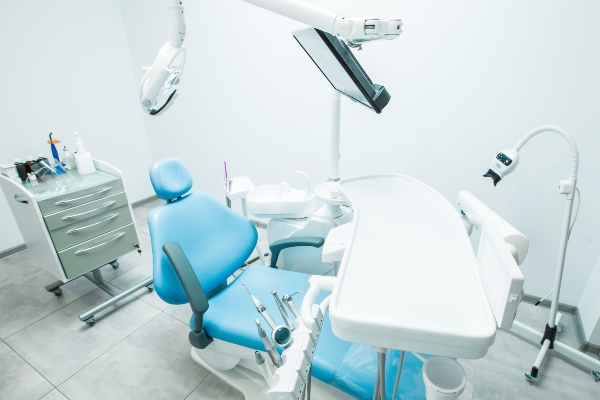Full Mouth Reconstruction: How Dental Crowns Work To Restore Existing Teeth

Dental crowns are one of the more highly recommended forms of treatment during a full mouth reconstruction, and they offer cosmetic, oral health and functional benefits. Unfortunately, many who may benefit from dental crowns treatment put it off as they fear it is too invasive or takes too long. By learning more about the process, patients can make a more informed decision about treatment.
Dental crowns for restoring existing teeth
The primary role of dental crowns is to restore the size, shape, oral health and function of damaged teeth. The following is an overview of how dental crowns work as part of full mouth reconstruction, including what they are exactly, when to consider treatment and how the process works.
Full mouth reconstruction defined
A full mouth reconstruction is a set of dental procedures performed for patients who have severely damaged or missing teeth. The goal is to restore the health and appearance of all teeth in the mouth, along with improving gum and jawbone health as well. A primary concern of patients who seek a full mouth reconstruction is restoring damaged teeth and trying to prevent tooth loss. Dental crowns, which are dental restorations that are placed over teeth to restore size and shape and protect the underlying tooth, are one of the most popular forms of dental restorations.
When are dental crowns appropriate?
Every full mouth reconstruction patient has unique needs and goals for treatment. For patients who have missing teeth, dental implants or dentures might be the best option. However, dental crowns are most ideal for patients who still have their natural teeth and are looking to strengthen and restore them to prevent tooth loss and improve the appearance and oral health. They are appropriate for patients who have teeth that are worn down from teeth grinding, chips, cracks and tooth decay.
The benefits of dental crowns for existing teeth
Dental crowns are versatile and work well for teeth towards the front of the mouth, as well as, premolars and molars. For teeth that are more visible, dental crowns offer a tooth-colored appearance and they blend in well with adjacent natural teeth. They are also durable and can last for far more than a decade with proper care. Additionally, they can significantly reduce the risk of tooth loss and allow the patient to have fewer food restrictions.
How the dental crowns process works
Every patient has a unique experience, but most full mouth reconstructions begin with a consultation visit. If the patient decides on dental crowns treatment, an impression is taken of the patient’s teeth, which is used to customize each dental crown. Once they arrive back from the laboratory, a procedure is scheduled to place the crowns and complete the restoration process.
A dentist can help with full mouth reconstruction
Dental crowns are a great way to restore existing teeth and make for a long-term solution for damaged teeth. To learn more about the benefits of dental crowns as part of a full mouth reconstruction, reach out to today to schedule a visit.
Request an appointment here: https://gkdentaloffice.com or call GK Dental PC at (617) 826-6075 for an appointment in our Everett office.
Check out what others are saying about our services on Yelp: Read our Yelp reviews.
Recent Posts
An emergency dentist provides urgent care for individuals experiencing sudden dental issues that require immediate attention. Understanding what qualifies as a dental emergency can help patients determine when to seek professional help. While some dental problems may seem urgent, others can be addressed with routine care. Whether due to a sudden injury, severe pain, or…
If you have severe dental pain, an infection, or an injury, seeing an emergency dentist can give you immediate relief. However, following the recommended care instructions after professional treatment is important to ensure proper healing and avoid potential complications. Following these post-treatment guidelines can lead to a smoother recovery and better overall oral health.Following a…
Choosing a family dentist as your next dental provider is one of the best decisions you can make for every family member. However, there are multiple factors to take into account when asking questions. Here are a few potential questions to consider when searching for a family dentist.Most feel comfortable starting with questions about their…
Teeth whitening treatments are an effective way to improve the color of your teeth significantly. These treatments consist of using chemicals with bleaching properties like hydrogen carbamide or hydrogen peroxide to remove stains from the inner and outer layers of teeth.The types of stains teeth whitening treatments are effective on include the yellow stains teeth…


